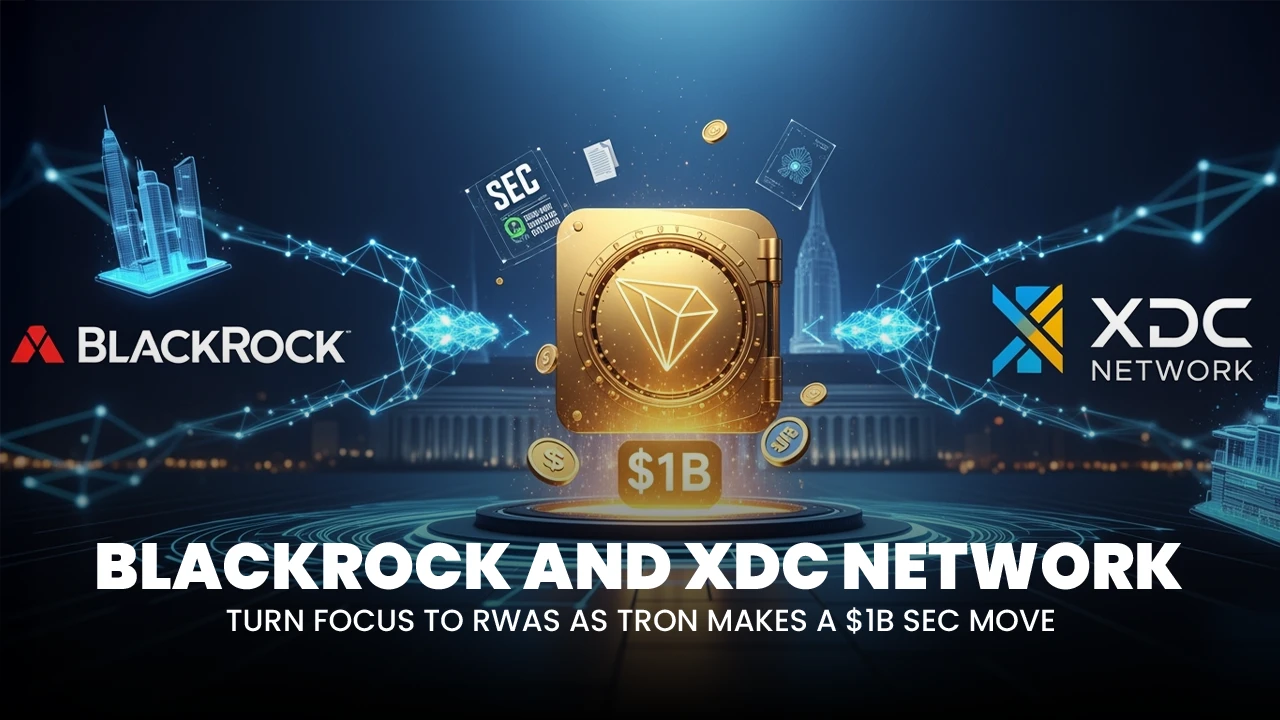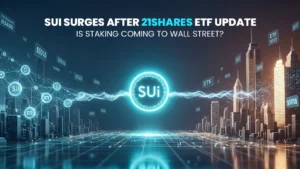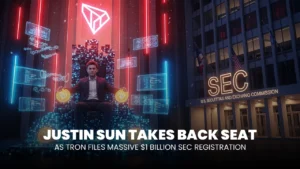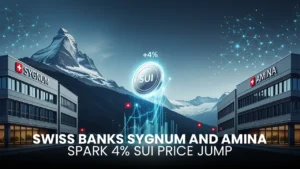BlackRock and XDC Network Turn Focus to RWAs as TRON Makes a $1B SEC Move

BlackRock, the world’s largest asset manager, has quietly tapped the XDC Network to support its real-world asset (RWA) tokenization strategy. This move signals growing institutional reliance on public blockchains.
Analysts tracking on-chain activity discovered that BlackRock’s tokenized US Treasuries from its BUIDL fund had moved from Ethereum to XDC. This shift is not just technical. It suggests BlackRock’s growing preference for faster, more cost-effective blockchain environments.
XDC Network is built on the Delegated Proof of Stake (DPoS) consensus, offering high-speed transactions, energy efficiency, and decentralized governance. Such features become crucial for financial applications on a large scale, both needing speed and those needing to comply.
Treasuries Go On-Chain as BlackRock Assets Land on XDC Network
GlobiancePay, a regulated platform built on XDC Network, confirmed that BlackRock’s Treasury tokens have been reissued using the XRC-20 token standard. This transition is a significant leap for cross-chain RWA migration.
ALSO READ: Cardano’s Midnight Airdrop Backfires as ADA Price Drops 3% in Market Retreat
The transfer from Ethereum’s high-gas ecosystem to XDC’s DPoS-driven infrastructure reflects the trend towards blockchains designed for scale and efficiency. With more than $459 million of tokenized RWAs already being traded on multiple chains, the need for scalable networks is on the rise.
XDC’s Delegated Proof of Stake allows it to achieve fast processing of transactions, lower energy consumption, and retain decentralization. Those characteristics make it an appealing candidate for traditional institutions moving into the blockchain world. This migration is about more than cost savings. It reduces friction in asset movement, streamlines compliance, and reinforces blockchain’s ability to meet institutional standards.
TRON’s $1 Billion Filing Signals a New Crypto Treasury Strategy
Whilst BlackRock refines its tokenization infrastructure for assets, TRON is taking a big step of its own. The blockchain network has submitted a $1 billion SEC shelf registration with the US Securities and Exchange Commission (SEC).
That avails TRON legal versatility to issue diverse financial products, including debt, equity, or tokenized assets, without obtaining successive approvals from the regulators.
ALSO READ: ARK Invest, Bill Miller Propel Bitmine’s Ethereum Holdings Above 833K
This filing augments the Treasury Reserve Policy of TRX, laying the groundwork for reserve handling, liquidity expansion, and long-term network development. It represents a genuine effort towards institutional faith and regulatory compliance.
TRX, as with XDC, is based on a Delegated Proof of Stake (DPoS) consensus mechanism. The network handles thousands of transactions every second with a high degree of decentralization.
By obtaining regulatory approval by means of a shelf registration, TRX places itself in a good position to bring traditional capital to a rapidly evolving digital ecosystem.
Why Efficient Blockchain Networks Are Gaining Dominance
These two high-profile moves are part of a broader trend. They are driven by the shared infrastructure advantages offered by DPoS blockchains. Networks like XDC and TRX are demonstrating they can deliver the scalability, governance, and regulatory compatibility required by real-world financial institutions.
With a Delegated Proof of Stake, the token holders vote for a small set of validators to secure the network, providing for rapid block times, stable transaction fees, and democratic governance.
Such features become critically necessary for institutions requiring performance without compromising compliance or decentralization. Through stealthily transferring assets as well as developing regulatory structures, both BlackRock as well as TRX are pioneering new norms for Delegated Proof of Stake-based blockchain finance. And they’re achieving this on Delegated Proof of Stake-based platforms.
ALSO READ: Wall Street Blues? Ark Invest Boss Strikes Back with $30M Crypto Blitz on Coinbase
Conclusion:
With BlackRock adopting XDC’s infrastructure for tokenized US Treasuries and TRX seeking regulatory clarity with a $1 billion filing, the integration of blockchain with traditional finance continues to speed up. The projects are no longer theoretical propositions but rather live, institutional-scale deployments on scalable, open blockchains.
Effective, secure, and compliance-friendly networks are coming to life as the building block of the future of finance. For both crypto-natives and Wall Street, the future is being driven by the DPoS mechanism.
Frequently Asked Questions (FAQs)
- What specifically did BlackRock do on the XDC Network?
BlackRock moved tokenized US Treasuries from Ethereum to the XDC Network and redeposited them with the XRC-20 standard, taking advantage of the DPoS-fueled infrastructure for increased efficiency.
- Why is the TRX $1 billion shelf registration significant?
It allows TRX the legal versatility to develop diverse financial instruments within US regulations, reinforcing its Treasury Reserve Policy and institutional preparedness.
- What do DPoS blockchains gain from DPoS?
DPoS allows faster transaction speeds, lower costs, and better scalability while maintaining decentralization through elected validators.
- Does the BlackRock decision herald further RWA adoption?
Yes. It reflects increasing interest from traditional finance in blockchain-based solutions for tokenizing real-world assets.
- What is the implication of this for future crypto regulation?
These moves suggest a growing alignment between blockchain infrastructure and regulatory standards, opening the door for broader institutional participation.
Glossary of Key Terms
- RWA (Real-World Assets): Conventional financial or tangible assets like bonds or real estate, digitized on the blockchain.
- XRC-20: A smart contract token standard on the XDC Network, similar in function to Ethereum’s ERC-20.
- Shelf Registration: SEC filing by which an entity may issue securities from time to time without successive approvals.
- Delegated Proof of Stake (DPoS): The consensus process by which the token owners vote to select a fixed number of validators to process and verify the transactions.
- Tokenization: The digital representation of real-world or financial assets on a blockchain to enable on-chain trading and settlement.




